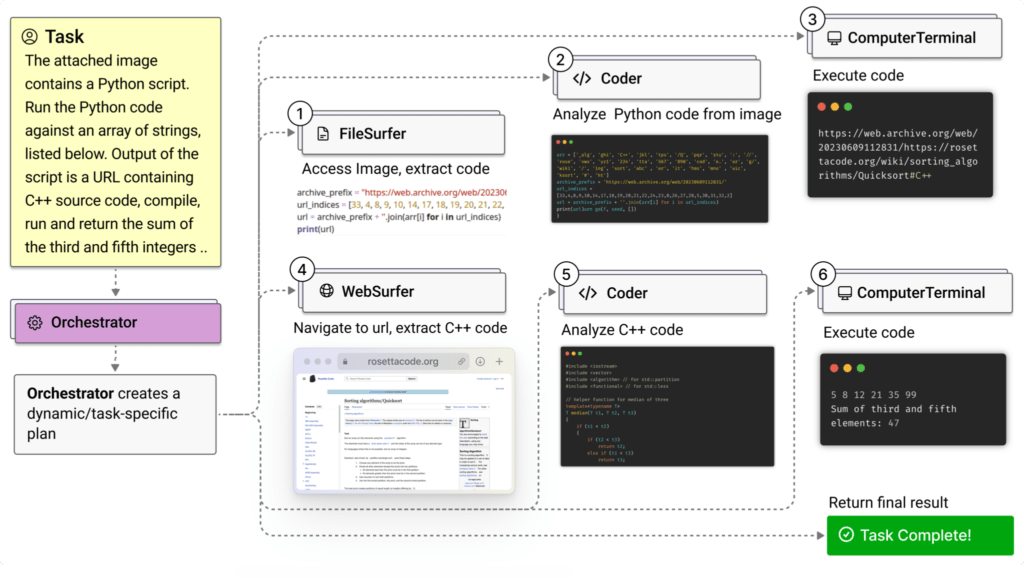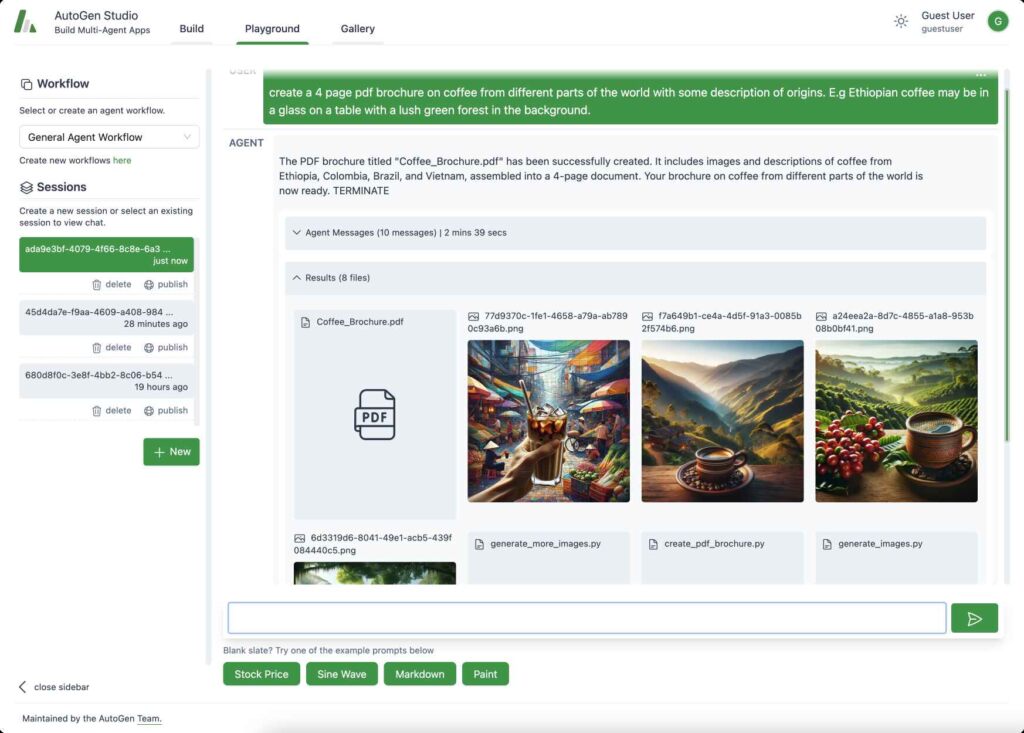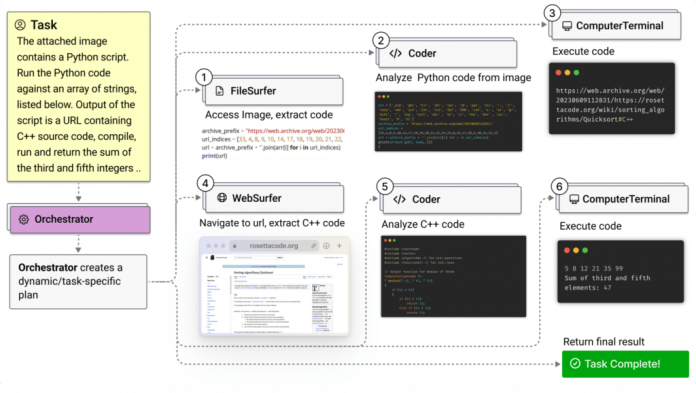Microsoft has announced the release of AutoGen v0.4, a major upgrade to its open-source framework for multi-agent AI workflows, alongside the introduction of the Magentic-One system which the company presented last November.
The update, designed to address developer feedback, enhances scalability, modularity, and debugging tools, enabling more robust and extensible AI systems. This iteration marks a pivotal step in advancing task automation and collaborative AI applications.
A Redesigned Framework for Multi-Agent AI
AutoGen v0.4 introduces an asynchronous, event-driven messaging system that facilitates seamless communication between agents. This design allows agents to operate collaboratively across complex workflows, employing both event-based and request-response interaction patterns.
Microsoft describes the update as “a complete redesign of the AutoGen library, developed to improve code quality, robustness, generality, and scalability in agentic workflows.”
The framework’s modular structure supports the integration of custom agents, tools, and workflows, making it highly adaptable for diverse applications.
Built-in observability tools, including OpenTelemetry support, provide detailed monitoring and debugging capabilities, offering developers the ability to trace messages, track metrics, and manage workflows effectively.
Magentic-One: The Core of Advanced Task Automation
The introduction of Magentic-One highlights AutoGen v0.4’s potential for orchestrating multi-agent collaboration. Magentic-One relies on an orchestrator that coordinates a team of specialized agents to execute complex, multi-phase tasks. The system includes four key agents:
WebSurfer Agent: This agent navigates the web, performing tasks such as conducting searches, clicking on links, and interacting with online elements. Similar to browser-based tools like Anthropic’s “Computer Use” feature, WebSurfer can gather and synthesize information across multiple websites, providing summaries and insights needed for broader project goals.
FileSurfer Agent: Tasked with exploring local directories and analyzing file content, FileSurfer supports workflows that involve document management, data retrieval, and local data processing. This agent ensures that essential files are accessed and integrated smoothly into projects without requiring manual oversight.
Coder Agent: With the ability to write and evaluate code, the Coder agent functions as a virtual programmer. It can draft new scripts, debug existing ones, and collaborate with other agents by interpreting input from the WebSurfer or data parsed by the FileSurfer. This capability positions Magentic-One as a versatile tool in environments where development and coding automation are necessary.
ComputerTerminal Agent: The final piece in the agent lineup is the ComputerTerminal, a specialized agent that runs the code generated by the Coder. By executing programs directly, it closes the loop in projects that require immediate testing or deployment, acting as a real-time execution environment that can adapt based on feedback from the Orchestrator.


Central to Magentic-One’s functionality is the orchestrator’s “task ledger” and “progress ledger.”
The task ledger serves as a blueprint outlining each step of a project, while the progress ledger monitors completion and adapts workflows dynamically. This adaptability ensures that the system can recalibrate and overcome challenges without manual intervention.
AutoGen v0.4 introduces new tools to simplify the development of AI systems. AutoGen Studio, a low-code environment, enables rapid prototyping with features like real-time agent updates, mid-execution controls, and a drag-and-drop interface for team building.
The interface also includes message flow visualization, which provides an intuitive way to track agent communication paths.


AutoGen Bench is another key addition, offering a benchmarking tool for evaluating agent performance across tasks and environments. Both tools are designed to minimize development complexity and encourage experimentation with multi-agent systems.
A Competitive Context for Multi-Agent AI
AutoGen v0.4 and Magentic-One arrive at a time when competition in AI-driven task automation is intensifying. Salesforce’s Agentforce 2.0 and Google’s Agentspace offer unique approaches to automating workflows. However, Microsoft’s focus on modularity, scalability, and community-driven development differentiates its approach.
Magentic-One integrates with OpenAI’s GPT-4o for enhanced reasoning capabilities but remains LLM-agnostic, allowing developers to tailor systems to specific needs by choosing different language models. This flexibility positions AutoGen as a versatile framework for businesses and developers seeking advanced AI solutions.
Migration and Future Development
Microsoft has taken steps to simplify the migration process from earlier versions of AutoGen. The new AgentChat API retains familiar abstractions while introducing new functionalities such as streaming messages, improved task-saving, and the ability to pause and resume workflows.
The company also plans to expand programming language support, introduce domain-specific extensions, and foster community contributions through open-source development.
Microsoft’s roadmap reflects its commitment to advancing agentic AI, emphasizing scalability, robustness, and ethical development. As the AI landscape evolves, AutoGen v0.4 and Magentic-One position Microsoft at the forefront of multi-agent AI innovation, setting the stage for future breakthroughs in automation and collaboration.

